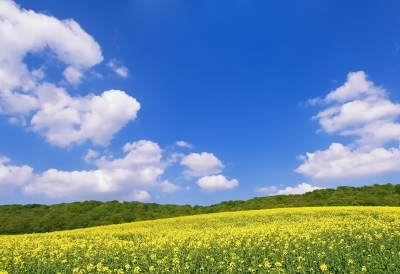Biomass Energy
 Energy supplies from biomass reached a record 14% share of the UK power mix as of 26th May 2020. Biomass energy provides 70% of the UK's renewable energy production, with plant biomass making up 21% of the several biomass energy options which include; landfill and sewage gas, domestic wood, industrial wood, co-firing, waste combustion, animal biomass, anaerobic digestion and transport biofuels.
Energy supplies from biomass reached a record 14% share of the UK power mix as of 26th May 2020. Biomass energy provides 70% of the UK's renewable energy production, with plant biomass making up 21% of the several biomass energy options which include; landfill and sewage gas, domestic wood, industrial wood, co-firing, waste combustion, animal biomass, anaerobic digestion and transport biofuels.
Biomass energy is a fancy way of saying something which we are all quite used to - burning wood on a campfire. But biomass fuels can be any plant or animal material. Rape seed (pictured) is one type of plant used and in the deserts of north Africa, camel dung is used to burn as a fuel. There’s certainly plenty of biomass about, although growing some plants for fuel might use up space where food could be grown.
Read More: Wind Power